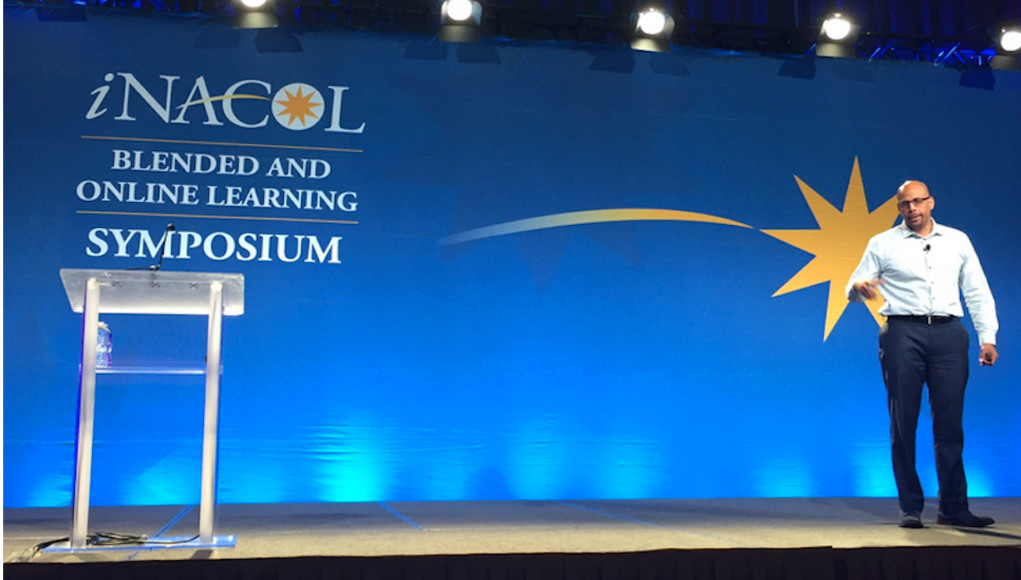
Advancing Human Potential: The Power of Personalized Learning
Personalized learning–customized pathways for every student–it’s the new meme in U.S education.
Teachers have been attempting to differentiate for decades. Blended learning environments have made it much easier to meet individual needs–both with adaptive software and buying time for teachers to work with small groups and individuals. The rich descriptions of personalized trajectories described by Christensen, Learning Accelerator, Education Reimagined and iNACOL remain elusive in practice.
One important development since we published the Blended Learning Implementation Guide three years ago is the rise of personalized project-based learning. We’ve spotted 10 school networks doing a pretty good job with some scale.
But there are still only a few rather early examples of customized learning sustained over a multiyear trajectory. The handful of examples we have–research on individualized tutoring and next generation models–suggests real potential for accelerated progress and deeper learning. The potential is strong enough that Jim Shelton has made it the central focus of the new Chan Zuckerberg Initiative. They call it “advancing human potential.”
Shelton keynoted the recent iNACOL Symposium where he said, “Our system builds inequity, because of the assumption it’s supposed to be that way.” He asked, “Can we empower teachers to do what most get into this profession to do, change lives?”
During his speech Shelton stressed that personalized learning is not students alone with a computer. “Teachers are key,” he said.
Shelton thinks personalized learning can move the outcome distribution curve to the right–narrowing gaps and boosting achievement for all. He thinks that will take innovation–both new practices and tools (invention) and scaling strategies.
Innovation taken to scale will require “Enabling environments, connectivity, interoperability, flexibility, and a market where what works wins.”
“An Amazon service rep knows more about you than the average teacher knows about the students in her classroom,” said Shelton. He thinks we need thick learner profiles that help pinpoint gaps and identify key leverage points.
Quoting the LEAP Learning Framework he said, “Powerful personalized learning experiences are transformative. They connect with who the learner is and what they need and want and change his or her perspectives and life trajectories for the better.”
He acknowledged that most students will need more sophisticated support than they receive today. Turnaround for Children is an example of a thick support system (see diagram below).
Shelton’s discussion on personalized learning included a few key points:
- Connectivity. Technology is not the answer but technology does change everything. It gives you complete transparency on the process of learning and the outcomes
- We can learn faster than ever. Access to high-quality information has made it possible for people to learn at new speeds.
- Work in new ways. Teachers can’t and shouldn’t have to invent all the tools. We need to make it easier. Need new partnerships to build strategies, infrastructure, tools and resources are required to accelerate the pace of learning.
- Answer big questions. how do people learn and achieve mastery, what malleable dispositions, skills and behaviors maximize (or minimize) learning.
- Solve big problems. Describe what people need to learning, what learning experience most efficiently produce mastery.
To truly advance human potential through personalized learning Shelton suggested we need to build a movement:
- Empower learners and teachers
- Engage parents and community stakeholders
- Enlist policy makers and system leaders
- Excite and inform the public
For more from #iNACOL16 see:
- 3,500 Educators Committed to Innovation for Equity
- Creating Personalized Learning for English Language Learners
- EdTech 10: iNACOL Edition


Here at the Center on Innovations in Learning we recently published our Handbook on Personalized Learning, which includes connections between competency based learning, learning technology, and personal competencies: http://www.centeril.org/2016handbook/
Student at Cerritos College
7yKnowledge, power, discover and acceptance and change and book worm and travel
Educator excellence through teacher training * * Complex communication development for business success
7yGreat thoughts - thank you for sharing. Seems to me this is similar to learner development-focused coaching, which can work wonders with children and adults alike.
Chairman, CEO & Co-Founder, Baseball United, Inc. // Founder BSB Group, BSB Sports, & Besomebody, Inc. // Licensed Sports Agent // Ex P&G + GoPro
7yAwesome. Have you seen what we are building in Experiential Learning here in Boston Tom Vander Ark?
founder, board member and distinguished camel wrangler
7yGreat article Tom, appreciate that you have taken the time to write this. I wanted to ask you one particular question about personalized learning and technology. In my opinion, we all agree that if students were to have access to personalized content, results by any conventional education metric, be it engagement or grades, would improve. Where I think we lack consensus or even a strong hypothesis is on what basis to personalize content. For example, the most obvious way seems to be performance, but its exceptionally difficult to measure cognitive development on the basis of grades, as multiple studies have shown this can be problematic (http://www.tandfonline.com/doi/abs/10.1207/s15326985ep2802_3) Do you think that there are particular inputs (i.e. Sources of data) technology will help us access at scale to help achieve those personalized outcomes we all agree are optimal?